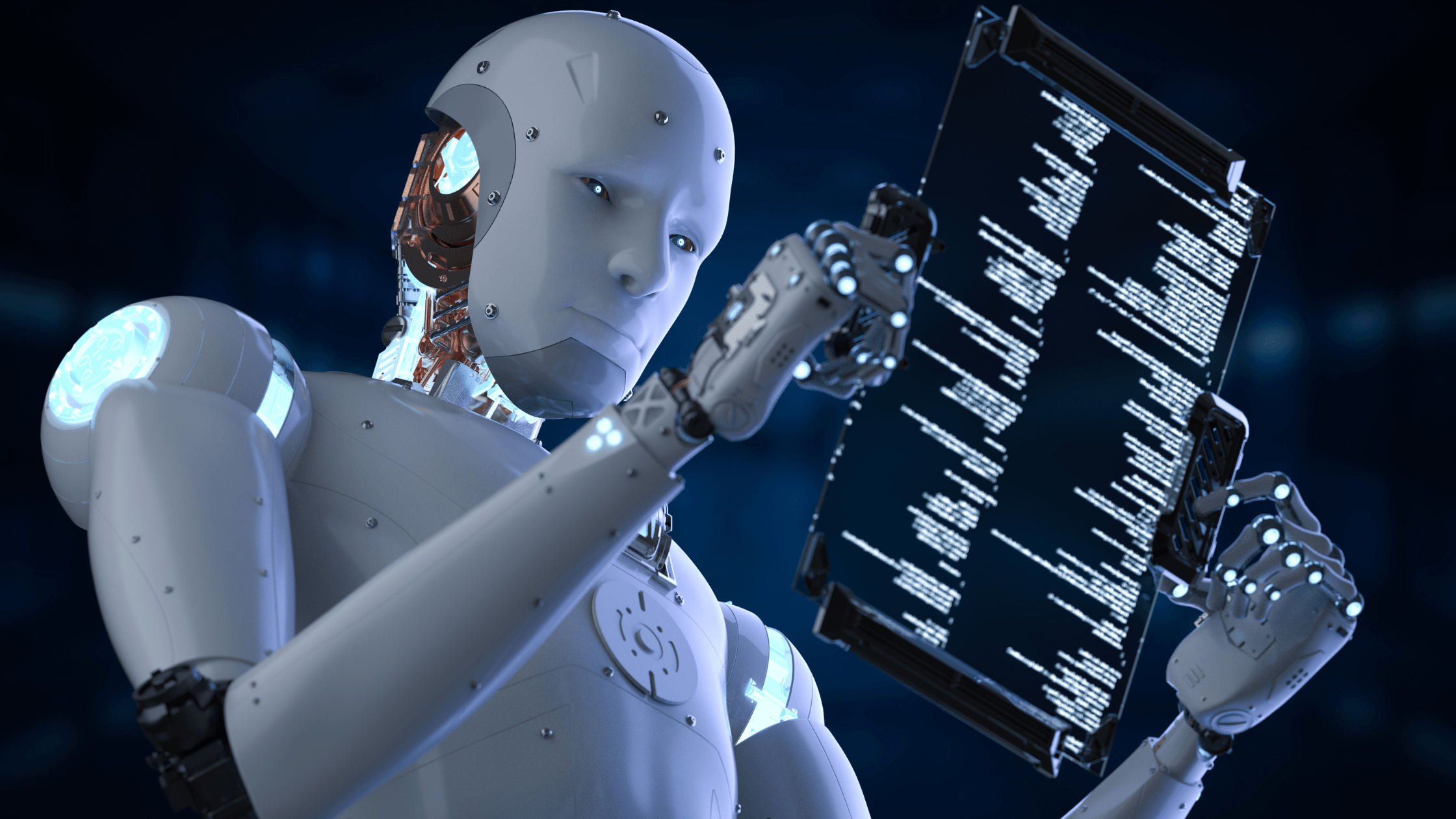As we enter 2024, we have seen artificial intelligence (AI) evolve from merely a buzzword in tech circles to a potentially industry-disrupting force, poised to reshape how businesses operate and staff their operations. Among the headlines, one noteworthy example is the Swedish fintech company Klarna’s decision to implement a hiring freeze, attributing this change to the company’s increased reliance on AI, which raised eyebrows and questions alike. As machines grow more intelligent, there’s a burgeoning concern that human workers may find themselves competing with the very tools they once programmed.
Fuelled by advancements in machine learning and other sophisticated technologies, AI systems are stepping in to perform tasks ranging from the mundane to the complex. This has led some to experience a certain trepidation regarding job security, whilst others espouse the potential for AI to augment human roles, enhance productivity, and spawn new categories of employment. Amid this complex milieu, anecdotes such as Klarna’s decision suggest that the AI revolution is increasingly impacting labour markets and professional landscapes across sectors.

However, despite the disconcerting headlines, the picture might not be quite so black and white. While AI could replace the equivalent of 300 million full-time jobs, as suggested by a report from a prominent investment bank, it’s equally important to consider AI’s capacity to create new opportunities. The critical question remains: is AI a modern-day Prometheus, bringing fire to industry and igniting innovation, or is it potentially an Icarus, soaring too high and heading towards an employment meltdown? The conversation about AI’s role in the employment sphere is multi-layered, nuanced, and, as Klarna’s example illustrates, very much unfolding in real-time.
The Artificial Intelligence Job Paradox

In the ever-twisting narrative of artificial intelligence in the workplace, 2023 has given us more to mull over than a cup of tea in a tempest. While some chant doomsday for the traditional job market, others see AI as nothing more than a spiffy tool in the grand scheme of things.
Defining the AI Landscape in 2024
In 2024, AI is no longer just a whiz-kid on the block; it’s a full-fledged member of the workforce, contributing to an array of sectors. Tales abound, such as those from Forbes, where generative AI is transforming tasks with unrelenting gusto. However, one curious case stands out: Klarna’s hiring freeze. Despite the fintech giant’s penchant for innovation, they’ve put the brakes on recruiting, hinting at the subtleties and shifts within the industry’s adoption of AI.
Revisiting the Luddite Fallacy
Remember the Luddites? Those chaps from the early 19th century who were convinced machines spelled the end of days for their jobs? Fast-forward to today, and the conversation hasn’t aged a day. A report by Goldman Sachs suggests AI could replace the workload equivalent to 300 million jobs. Yet, here’s the rub: history suggests that while technology displaces certain roles, it also creates new ones. It’s not a simple tale of ‘out with the old, in with the new’; it’s more of a shuffle and a shimmy as the job market adjusts its collar and adapts.
Sector-Specific AI Impact
As we clock into 2024, the ripple effects of AI on job landscapes vary by sector, each with its particular brand of electronic efficiency and robotic charm. One’s ruffled feathers might be another’s unwrinkled suit.
Automation in Manufacturing
In the world of making things, robots and AI are old hat, but they’re getting posher and more sophisticated. Manufacturing firms are introducing AI to increase output and decrease costs, with machines taking on the humdrum tasks so humans don’t have to. It’s a bit like having a robotic butler, only for heavy machinery.
AI Evolution in the Service Sector
The service sector’s getting a digital makeover. AI is stirring up everything from customer service – enter the chatbots who never need a cuppa – to financial services where algorithms play the market with the nerves of a cucumber. Companies such as Klarna have put a freeze on hiring, possibly to recalibrate where AI fits in their human-to-tech ratio.
The Creative Domain Conundrum
In creative fields, AI’s causing a bit of a brouhaha. You have AI creating art that’s quite frankly passable, stirring debates on the essence of creativity. Yet, the industry’s professionals are cautiously optimistic, seeing AI as a tool rather than a replacement. After all, a robot might pen a novel, but can it savour the sublime joy of a well-crafted cup of tea?
Klarna: A Case Study

In late-2023, Klarna made waves in the fintech world when they put a freeze on hiring, signalling a major pivot towards artificial intelligence.
Klarna’s Hiring Freeze
It’s not every day one hears about a company halting their recruitment to turn to AI, but Klarna seems to have done just that. The Swedish fintech firm took a bold step by implementing a hiring freeze—quite the unconventional move in the bustling world of finance technology.
Fintech and AI: An Intricate Dance
A duet of sorts is emerging between fintech and AI, where algorithms glide and sashay across the digital floor previously trodden by humans. Klarna’s strategy indicates a belief in AI’s capability to drive efficiency and reduce operational costs—a significant promise for any company looking to navigate the choppy waters of profitability.
Analysing Klarna’s Strategic Moves
When Klarna’s CEO, Sebastian Siemiatkowski, confidently bet on AI, it wasn’t a mere whim. This decision to replace human jobs with AI automation reflects a strategic analysis of the tech horizon and Klarna’s position on it. It underscores a pivotal shift, one that could potentially set a trend in the industry’s use of AI-driven models.
Adaptive Workforce Strategies
In the tumultuous sea of 2024’s job market, companies are hoisting the sails of adaptation to ride the AI wave. They’re not tossing workers overboard but rather decking them out with new skills and flexible roles.
Upskilling: More Than Just a Buzzword
They say you can’t teach an old dog new tricks, but in the world of work, upskilling is becoming essential. Organisations are investing in training programmes that breathe new life into employees’ skill sets, making them as agile as cats. For instance, a company like Klarna, amidst its decision to freeze hiring, may focus on re-tooling current staff to handle more technology-driven tasks, ensuring that they remain relevant and valuable assets.
- Current Focus Areas for Upskilling:
- Data analysis
- Digital literacy
- AI management
The Gig Economy and AI
Once upon a time, gigs were something musicians did. Now, with AI shouldering some of the load, more folks are tuning their careers to the gig economy’s rhythm. It’s a symphony of short-term contracts and freelance work, with AI often conducting the orchestra. For the worker bees, this could mean switching from a single employer to multiple clients, using AI as their trusty sidekick to find opportunities that match their unique skill set. Read our article on the gig economy for more information.
- Key Components Influenced by AI:
- Job matching platforms
- Remote working tools
- Project management software
Legislative Landscape

In the ever-twisting world of AI, it’s legislations rather than just algorithms that are giving tech whizzes a run for their money. Lawmakers are busy bees, putting the pieces of the regulatory puzzle together as the AI wave surges forward.
Global Regulation Divergence
Around the globe, countries display a veritable patchwork quilt of regulations for AI. They’ve each got their own rulebook, after all. While the EU is buttoning up with its prospective AI Act—aiming to be the gold standard for AI governance—other players on the field like the US seem to be endorsing a more laissez-faire approach with softer, guideline-based models. This global divergence could spell quite the conundrum for international AI applications, where one AI’s ‘right as rain’ in one country may be hitting a regulatory grey cloud in another.
AI and Employment Law
If AI were a chess piece in the game of employment, it’d undoubtedly be the Queen—powerful and packed with potential moves. Lawmakers are pondering the impacts of AI in the workplace, as they try to ensure workers don’t end up in a tizzy. The UK’s approach eschews a new regulator, instead opting for guidelines on ‘responsible use’. This sets a tone for AI’s role in employment—giving businesses a leg-up with automation while ensuring the job market doesn’t turn into a wild roller coaster ride for the workforce.
If you’ve enjoyed this blog post, let us know at info@rekkruut.com, or let us know on our Twitter, LinkedIn or Facebook Pages!
Don’t forget to subscribe to our RekkTalk Newsletter, and visit our RekkBlog!



